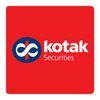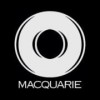
i
CSC
Filter interviews by
CSC Senior Associate Interview Questions and Answers
CSC Senior Associate Interview Experiences
12 interviews found
I applied via Naukri.com and was interviewed in Jul 2024. There were 2 interview rounds.
No aptitude test was taken
(2 Questions)
- Q1. What is Net asset value ?
- Ans.
Net asset value (NAV) is the value of a fund's assets minus its liabilities, divided by the number of shares outstanding.
NAV is calculated by subtracting the fund's liabilities from its assets.
The result is then divided by the number of shares outstanding to determine the NAV per share.
NAV is used to determine the price at which shares of a mutual fund are bought or sold.
It is an important metric for investors to asses...
- Q2. What do you mean by corporate actions ?
Interview Preparation Tips
(2 Questions)
- Q1. Different types of capital
- Ans.
Different types of capital include financial capital, human capital, social capital, and cultural capital.
Financial capital refers to money and assets that can be used for investment or production.
Human capital is the skills, knowledge, and experience possessed by individuals.
Social capital is the network of relationships and connections that individuals have.
Cultural capital includes the values, beliefs, and practices...
- Q2. Different types of distributions
- Ans.
Different types of distributions refer to the various ways data can be spread out in a dataset.
Normal distribution: bell-shaped curve with mean and standard deviation
Uniform distribution: all outcomes are equally likely
Binomial distribution: discrete distribution with fixed number of trials and probability of success
Poisson distribution: used for count data with rare events
Exponential distribution: used for continuous ...
I applied via Naukri.com and was interviewed in Dec 2023. There was 1 interview round.
(1 Question)
- Q1. What is management fees
- Ans.
Management fees are charges paid by investors to a professional investment manager for managing their assets.
Management fees are a percentage of the total assets under management (AUM) and are typically charged annually.
These fees cover the costs of research, analysis, and decision-making involved in managing the investments.
For example, a mutual fund may charge a management fee of 1% per year, which means investors pa...
Interview Preparation Tips
I applied via Naukri.com and was interviewed in Sep 2023. There were 2 interview rounds.

(2 Questions)
- Q1. What's your strength
- Q2. What's your weekness
Interview Preparation Tips

(2 Questions)
- Q1. Product knowledge related questions.
- Q2. Questions related to leadership and team handling
Interview Preparation Tips
I applied via Approached by Company and was interviewed in Aug 2022. There were 2 interview rounds.

(2 Questions)
- Q1. Why do you want work here?
- Ans.
I want to work here because of the company's strong reputation, opportunities for growth, and alignment with my skills and values.
Strong reputation: The company has a solid track record and is highly regarded in the industry.
Opportunities for growth: There are clear paths for career advancement and professional development.
Alignment with skills and values: The company's mission, culture, and values resonate with me, an...
- Q2. Where do see yourself in 5 years
- Ans.
In 5 years, I see myself as a Senior Associate with a strong track record of success, leading teams and contributing to the growth of the organization.
Continuing to excel in my role as a Senior Associate
Taking on additional responsibilities and leadership opportunities
Contributing to the growth and success of the organization
Mentoring and guiding junior team members
Building strong relationships with clients and stakeho...
Interview Preparation Tips
I applied via Recruitment Consulltant and was interviewed in Jan 2022. There were 3 interview rounds.
Aptitude round based on the domain specific to the opening. 15 MCQ questions relating to aml, kyc, sanctions, pep
(1 Question)
- Q1. Questions related to previous experience regarding kyc
(1 Question)
- Q1. Scenarios based questions. Risk assessment based on the given factors
Interview Preparation Tips
I applied via Recruitment Consultant and was interviewed in Nov 2021. There were 3 interview rounds.
Interview Questionnaire
2 Questions
- Q1. Previous job experience
- Ans.
In my previous role, I managed projects, collaborated with teams, and drove strategic initiatives to enhance operational efficiency.
Led a cross-functional team to implement a new project management tool, resulting in a 20% increase in productivity.
Developed and executed a marketing strategy that increased customer engagement by 30% over six months.
Conducted data analysis to identify trends, which informed decision-maki...
- Q2. Products and process knowledge
Interview Preparation Tips
Short and simple.
Shared my previous job profile and knowledge.
I applied via Recruitment Consultant and was interviewed in Jul 2021. There was 1 interview round.
Interview Questionnaire
1 Question
- Q1. Basic payment related questions
Interview Preparation Tips
Interview Questionnaire
2 Questions
- Q1. Previous experience
- Q2. Previous activities
- Ans.
I have engaged in various activities including project management, data analysis, and team collaboration to drive successful outcomes.
Led a cross-functional team to complete a project ahead of schedule, improving efficiency by 20%.
Conducted data analysis to identify trends, resulting in a 15% increase in sales through targeted marketing strategies.
Facilitated workshops to enhance team collaboration, leading to improved...
Top trending discussions






CSC Interview FAQs
Tell us how to improve this page.
CSC Interviews By Designations
- CSC Senior Associate Interview Questions
- CSC Associate Interview Questions
- CSC Assistant Manager Interview Questions
- CSC Management Trainee Interview Questions
- CSC Associate2 Interview Questions
- CSC SQL Developer Interview Questions
- CSC Team Manager Interview Questions
- CSC Fund Accountant Interview Questions
- Show more
Interview Questions for Popular Designations
Overall Interview Experience Rating
based on 9 interview experiences
Difficulty level
Duration
Senior Associate Interview Questions from Similar Companies
CSC Senior Associate Reviews and Ratings
based on 100 reviews
Rating in categories
|
Senior Associate
718
salaries
| ₹8.4 L/yr - ₹14.2 L/yr |
|
Assistant Manager
379
salaries
| ₹11 L/yr - ₹19 L/yr |
|
Associate
352
salaries
| ₹3.8 L/yr - ₹9 L/yr |
|
Manager
177
salaries
| ₹14.6 L/yr - ₹25.5 L/yr |
|
Senior Associate 2
176
salaries
| ₹10.1 L/yr - ₹17.7 L/yr |

Axis Direct

Kotak Securities

FactSet

Morningstar
- Home >
- Interviews >
- CSC Interview Questions

















